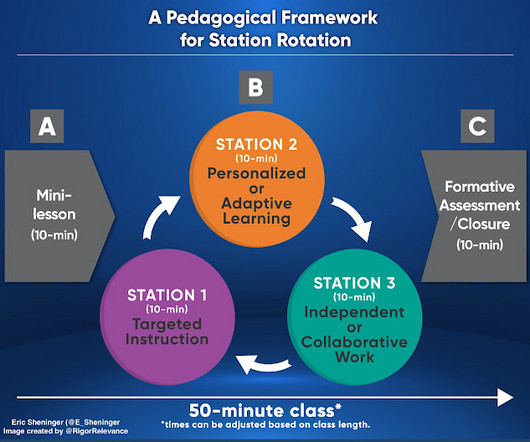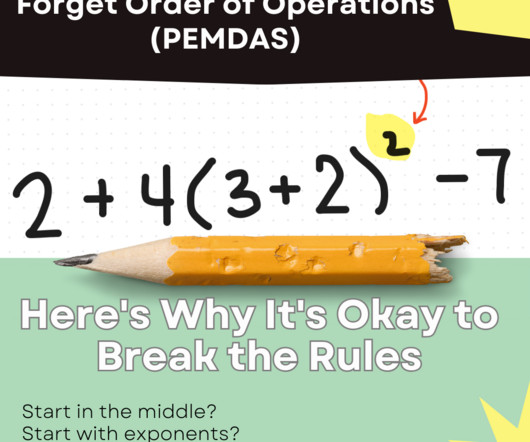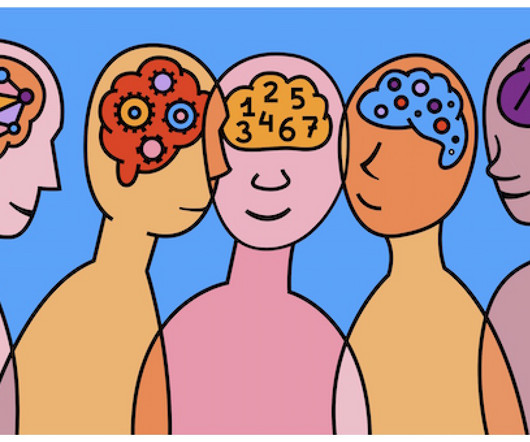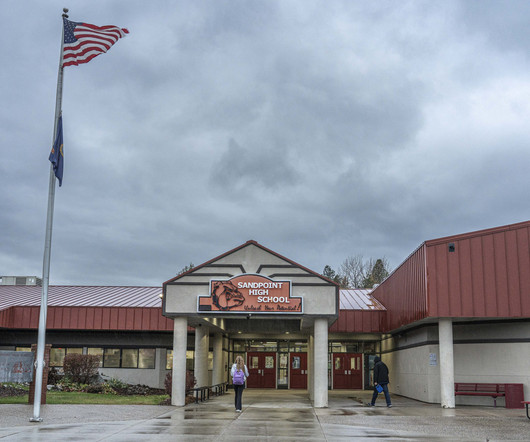10 Ideas for Primary ELA Stations
A Principal's Reflections
FEBRUARY 25, 2024
In my coaching work, suggestions typically arise for ideas on implementing various personalized strategies effectively at the primary level (PreK – 1). While choice , in my opinion, might not be the most developmentally appropriate option, I do see station rotation (or centers) as a viable option. Establishing engaging and educational station activities for primary-age students in the English Language Arts (ELA) curriculum is essential for fostering literacy skills, including reading, writing, l


















Let's personalize your content